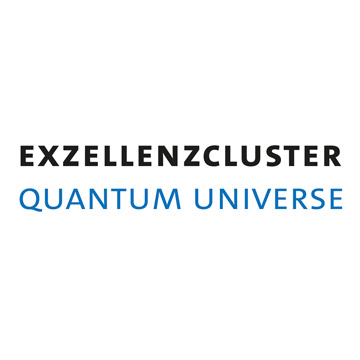
Cluster of Excellence Quantum Universe QU
The research of the cluster centers on a comprehensive investigation of the intriguing relations between quantum physics describing the smallest objects in nature, and the structure and evolution of the universe. Tremendous progress has been made with recent discoveries in particle physics and cosmology. However, the specific properties of elementary particles and their interactions are still lacking a deeper explanation. Furthermore, the quantum processes in the early universe, such as the generation of the matter-antimatter asymmetry, dark matter, and inflation are not yet described within an established theory. To achieve a coherent conceptual understanding of the fundamental laws of nature, the following questions have to be answered:
- How is the quantum origin of mass connected to the evolution of the universe?
- What is the nature of the dark matter of the universe?
- How is gravity related to the quantum world?
The cluster approaches the fundamental puzzle of mass and gravity from four different directions: Higgs physics, dark matter, gravitational waves, and quantum theories of matter and gravity.
Accordingly, the research program of Quantum Universe is organized within these four interlinked research areas.
Data science, machine learning and artificial intellegence all play a crucial role in the research of the cluster. With petabytes of data collected by large experiments and observatories, microsecond latency decision making in online data taking, and complex symmetries and structures of data and mathematical objects, application and method development in moden machine learning permeates the cluster. These topics are coordinated via a dedicated platform for challenges in data science (PCD).
People

